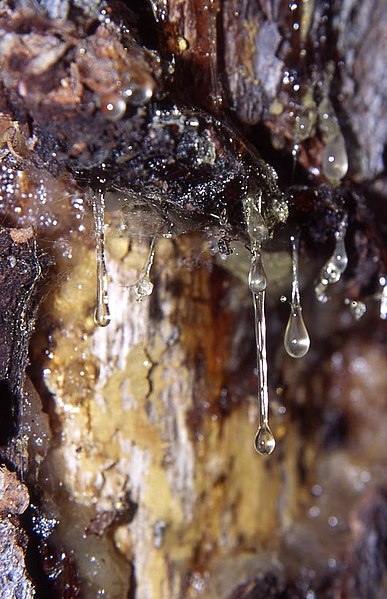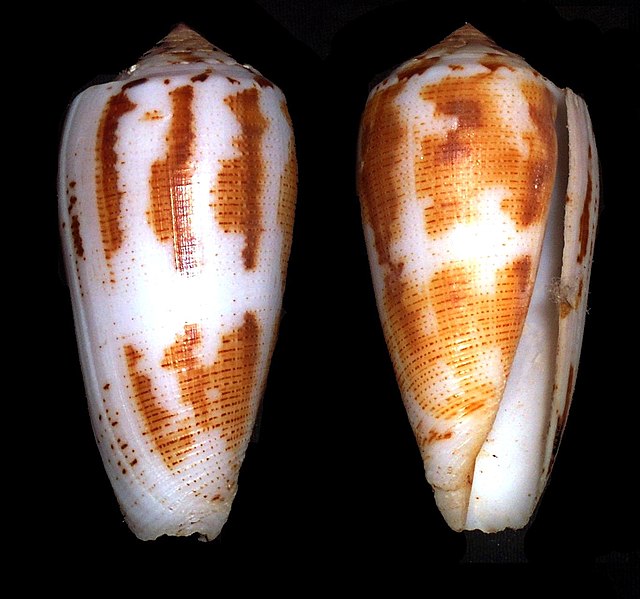Terpenes are a class of natural products consisting of compounds with the formula (C5H8)n for n ≥ 2. Terpenes are major biosynthetic building blocks. Comprising more than 30,000 compounds, these unsaturated hydrocarbons are produced predominantly by plants, particularly conifers. In plants, terpenes and terpenoids are important mediators of ecological interactions, while some insects use some terpenes as a form of defense. Other functions of terpenoids include cell growth modulation and plant elongation, light harvesting and photoprotection, and membrane permeability and fluidity control.
Many terpenes are derived commercially from conifer resins, such as those made by this pine.
Second- or third-instar caterpillars of Genus Papilio butterflies, like this Papilio glaucus, emit terpenes from their osmeterium.
A natural product is a natural compound or substance produced by a living organism—that is, found in nature. In the broadest sense, natural products include any substance produced by life. Natural products can also be prepared by chemical synthesis and have played a central role in the development of the field of organic chemistry by providing challenging synthetic targets. The term natural product has also been extended for commercial purposes to refer to cosmetics, dietary supplements, and foods produced from natural sources without added artificial ingredients.
The opioid analgesic drug morphine is a natural product derived from the plant Papaver somniferum
The analgesic drug ω-conotoxin (ziconotide) is a natural product derived from the sea snail Conus magus.
Antoine Lavoisier (1743–1794)
Friedrich Wöhler (1800–1882)






